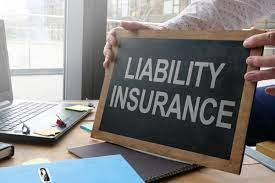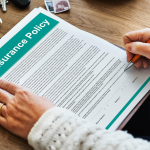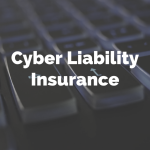Introduction
In today’s unpredictable business landscape, safeguarding your business from potential risks and liabilities is paramount. This article explores the importance of liability insurance and how it can serve as a shield for your business. We’ll delve into the various aspects of liability insurance, its types, benefits, and how it can help protect your assets and reputation.
Understanding Liability Insurance
What is Liability Insurance?
Liability insurance is a vital component of risk management for businesses. It provides coverage for legal costs, including attorney fees and settlements, in the event your business is sued for negligence, injury, or property damage.
Types of Liability Insurance
- General Liability Insurance: This type of insurance covers common risks and accidents, such as slip and fall incidents or product liability claims.
- Professional Liability Insurance: Also known as errors and omissions insurance, this type protects businesses against claims of professional negligence or inadequate service.
- Product Liability Insurance: Specifically designed for manufacturers, this insurance covers injuries or damages caused by a defective product.
- Employment Practices Liability Insurance (EPLI): EPLI safeguards your business against claims of wrongful termination, harassment, or discrimination by employees.
Benefits of Liability Insurance
Protecting Your Assets
Liability insurance prevents you from having to use your business’s financial resources to cover legal expenses, which can be substantial. It ensures your personal assets, such as your home and savings, remain untouched in case of a lawsuit.
Maintaining Business Reputation
A legal dispute can tarnish your business’s reputation. Liability insurance can help manage the fallout by covering public relations expenses and potential settlements, ensuring your reputation remains intact.
Legal Compliance
In many jurisdictions, liability insurance is a legal requirement for businesses, ensuring that you’re compliant with local laws and regulations.
When Do You Need Liability Insurance?
Starting a Business
When launching a new business, it’s crucial to assess your risks and determine the type of liability insurance that suits your industry.
Expanding Your Business
As your business grows, so do your potential liabilities. Expanding into new markets or offering new products and services may necessitate an update to your liability insurance policy.
Contractual Obligations
Clients and partners may require you to have liability insurance before entering into agreements or contracts. This is especially common in industries like construction or consulting.
How to Choose the Right Liability Insurance
Assess Your Risks
Identify the specific risks your business faces. Consult with an insurance professional to tailor a policy that addresses these risks adequately.
Compare Quotes
Request quotes from multiple insurance providers to ensure you’re getting the best coverage at a competitive price.
Read the Fine Print
Carefully review the terms and conditions of your policy. Understand what is covered and what is excluded.
Conclusion
Liability insurance is a crucial investment for any business, big or small. It not only protects your financial assets but also safeguards your reputation. In an unpredictable world, having the right insurance coverage can mean the difference between business success and failure.
Frequently Asked Questions (FAQs)
- Is liability insurance mandatory for all businesses? While it’s not mandatory for all businesses, some industries and contracts may require it. It’s essential to assess your specific needs and legal requirements.
- What factors influence the cost of liability insurance? Factors such as the type of business, coverage limits, location, and past claims history can impact the cost of liability insurance.
- Can liability insurance cover legal expenses even if my business is not at fault? Yes, liability insurance can cover legal expenses even if your business is not at fault. It’s designed to protect you from the financial burden of legal proceedings.
- How often should I review and update my liability insurance policy? It’s advisable to review and update your policy annually or whenever there are significant changes in your business operations.
- What should I do if I’m sued and have liability insurance? If you’re sued, contact your insurance provider immediately and provide them with all relevant information. They will guide you through the claims process and provide legal support as needed.
Remember that liability insurance is a valuable asset that can help you weather the storms of business uncertainties. It’s not just about protecting your assets; it’s about safeguarding the future of your business.







